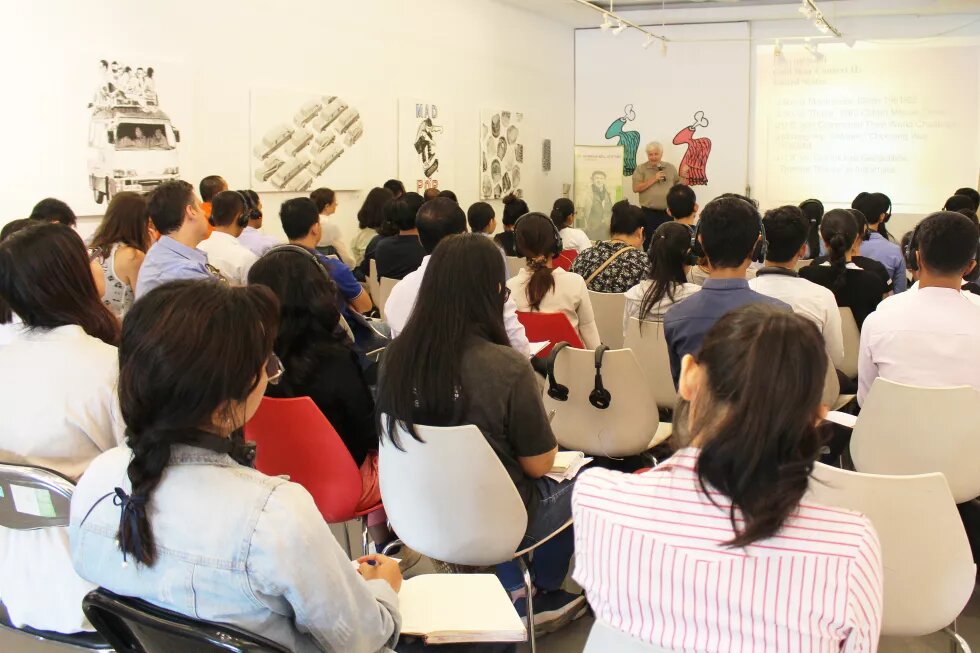Once again, the Heinrich Boell Stiftung Cambodia organized a 3 day seminar on “History, Conflict, Peace and Climate Change: Past and Present Challenges for Cambodia and ASEAN” last July 9-11, 2017 which took place at the Meta House, Phnom Penh. This seminar was also held last 2016 where Dr. Bernd Schaefer, a global fellow and former senior scholar at the Woodrow Wilson Center Cold War International History Project lead the lecture and discussion.

Around 60 active attendees from all walks of life, mainly of students and non-profit employees, actively participated during the seminar. Discussion focused on the Cambodian experience during the Cold War Era wherein Cambodian sovereignty back then is a matter of control between the two leading global powers and ideology, the democratic United States and Communist Russia and its allies, China and Vietnam. The Pol Pot regime was also mentioned as well as the international cooperation in achieving Cambodian Independence. The seminar was concluded through a brief discussion on ASEAN, Cambodia and Climate Change followed by the awarding of certificates.
Out of 181 countries, Cambodia is considered the 13th most vulnerable country against the risks of Climate Change. Even if it has no major coastline which concerns rising sea levels, the economic output of the country is at stake due to it prone to flooding and drying of lands which directly affects its agricultural productivity considering 80% of Cambodians are employed in the sector. Therefore, Cambodia’s societal awareness and action plans are indeed necessary in combating such risks. The participants’ willingness in dedicating time and effort in exploring more about the issue is already a positive sign in terms of awareness in a small scale level, so thus the Cambodian Climate Change Strategy. However, it is a fact that Cambodia cannot solve the lingering problem by itself. In this regard, the importance of ASEAN as a regional block aiming for political, economical and social empowerment has a major role to fill in helping its member states combat climate change. Although, ASEAN has included this issue in its ASEAN Socio Economic Community Blueprint , it is still limited to a country per country approach since each member states have different risk and priorities to Climate Change but, like any regional block, the importance of skills and knowledge sharing, especially in technology and law making are deemed necessary. As a way forward, Dr. Schaefer suggested that the use on coal in energy consumption should be lessened and be replaced by sustainable ones such as usage of solar panels. However, the price of this technology and buy in of Cambodians will be a major concern. To address the matter, collaboration among private, public and third sectors are necessary to provide affordable technology wherein ASEAN could show its potential in doing so.




